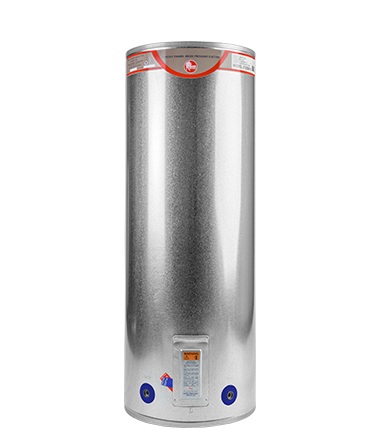Why Replacing Your Hot Water Cylinder is a Smart Investment for Your Home
A hot water cylinder is an essential part of any home, providing reliable and consistent hot water for daily needs such as bathing, cooking, and cleaning. However, like any home appliance, a hot water cylinder doesn't last forever. Over time, wear and tear can cause it to become less efficient, leading to higher energy bills, inconsistent water temperature, or even complete failure. If you're experiencing any of these issues, it might be time to consider replacing your hot water cylinder.
Here’s why replacing your old hot water cylinder can be one of the best investments for your home and how to choose the right replacement.
Signs It’s Time to Replace Your Hot Water Cylinder
Before jumping into a replacement, it’s important to recognize the signs that indicate your hot water cylinder needs attention:
1. Inconsistent Hot Water
If you find that your hot water supply is often too hot or too cold, or if it runs out too quickly, it could be a sign that your cylinder is no longer functioning efficiently. This inconsistency is often a result of the tank's internal components wearing out or the tank itself becoming corroded.
2. Increased Energy Bills
An old, inefficient hot water cylinder can drive up your energy consumption. Modern water heaters are designed to be energy-efficient, but older models tend to waste energy, leading to higher electricity or gas bills. If your energy costs are rising without any obvious reason, it might be time for an upgrade.
3. Visible Leaks or Rust
Leaking water or signs of rust around your hot water cylinder are strong indications that the tank is damaged or corroding. Not only do these leaks cause water damage to your property, but they also reduce the overall efficiency of the system. In such cases, replacing the cylinder is necessary to avoid further damage.
4. Age of the Cylinder
A hot water cylinder typically lasts between 8 to 15 years depending on the model and how well it has been maintained. If your cylinder is older than this, it may be time to replace it with a more modern and efficient model. Newer systems are built with advanced technology to offer improved performance and durability.
Benefits of Replacing Your Hot Water Cylinder
1. Improved Energy Efficiency
One of the primary reasons for replacing an old hot water cylinder is the energy savings. Modern cylinders are designed with advanced insulation materials, improved thermostats, and energy-efficient heating elements, all of which help reduce your energy consumption. This means that replacing your old cylinder can result in lower monthly utility bills.
2. Enhanced Hot Water Supply
New hot water cylinders offer better performance and a more consistent hot water supply. Many newer models have faster recovery times, meaning they can heat up the water more quickly and provide a more reliable flow of hot water. Whether you're running a large household or hosting guests, a new hot water cylinder can meet the demand more effectively.
3. More Durable and Longer Lifespan
Older cylinders are more prone to issues such as leaks, corrosion, and breakdowns. Replacing your old cylinder with a newer model can help ensure that you don’t face unexpected costs for repairs. Modern cylinders come with warranties and are made from materials designed to last longer, giving you peace of mind that your investment will stand the test of time.
4. Environmental Benefits
Replacing your old hot water cylinder with a more energy-efficient model reduces your home's environmental footprint. Lower energy consumption means fewer emissions, which is better for the environment. If you’re looking to make your home more eco-friendly, this is an important step in the right direction.
Choosing the Right Hot Water Cylinder Replacement
When selecting a new hot water cylinder, it’s important to consider the size, type, and energy source that best suits your home’s needs. Here are a few things to keep in mind:
-
Size: Choose a cylinder that can meet the demand of your household without being overly large. A professional plumber or installer can help you determine the correct size based on your daily hot water usage.
-
Type: There are several types of hot water cylinders, including vented, unvented, and combi systems. Each has its pros and cons, so it’s best to consult with an expert to determine which system is ideal for your home.
-
Energy Source: Decide whether you want an electric, gas, or solar-powered hot water system. Each has different installation costs and running expenses, so choose the one that aligns with your energy preferences and budget.
Conclusion
Replacing your hot water cylinder is an investment that not only improves your home’s energy efficiency but also enhances comfort, reduces costs, and ensures a reliable hot water supply. If your current system is showing signs of wear, such as inconsistent hot water, leaks, or rising energy bills, it’s time to consider a replacement. Consulting a professional plumber will help you make the right choice and ensure a smooth installation, giving you peace of mind and long-term savings.
Hot Water Solutions
3d Taid Place, Rosedale, Auckland 0800497658




Comments
Post a Comment